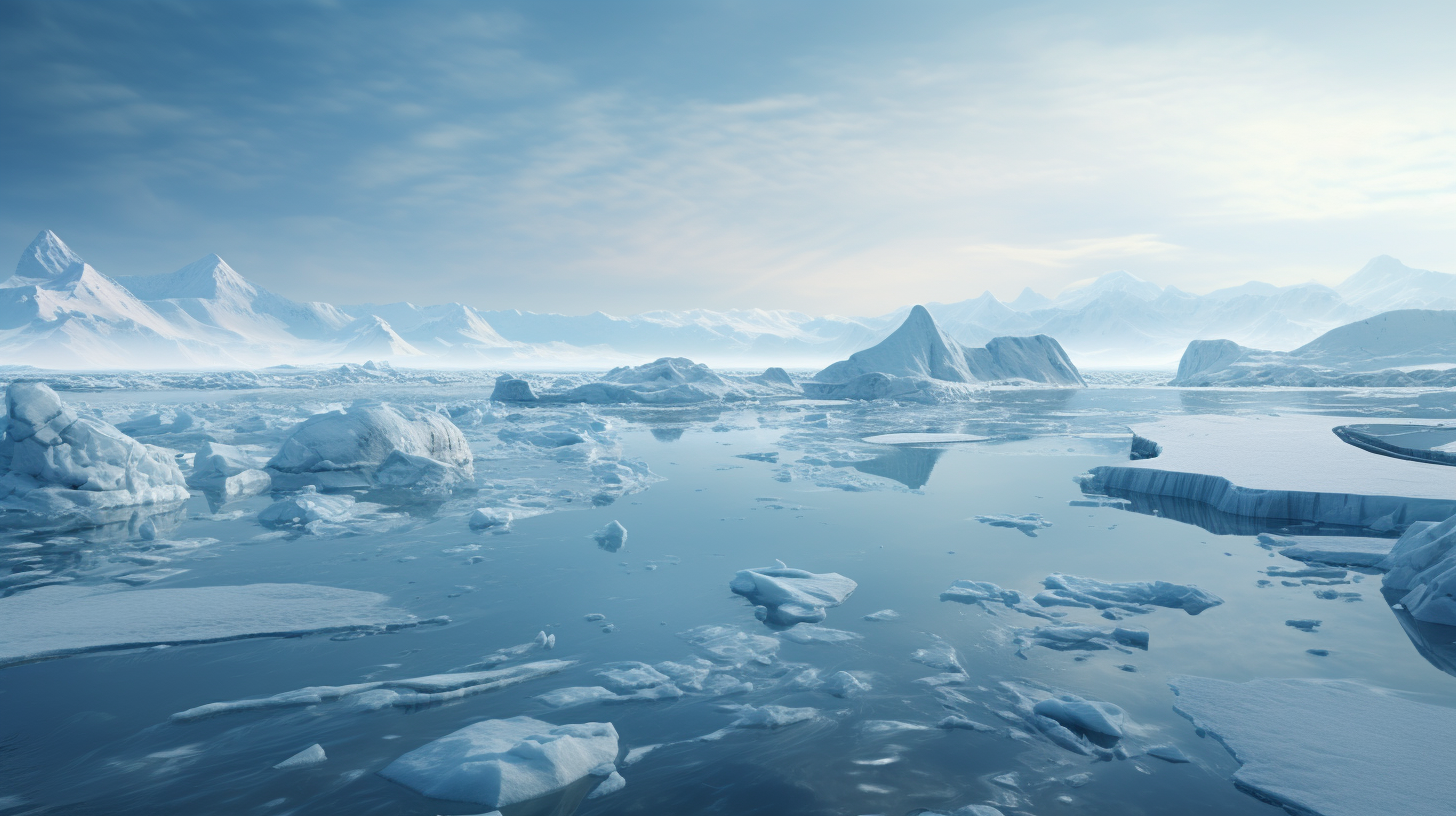In the continued chronicle of our planet’s lament, we turn our focused gaze—a piercing, frozen stare—upon the cryosphere’s tragic downfall. A once vast territory of ice and snow that stood as Earth’s alabaster guardians, now succumbs to the clutches of warmth it was never meant to embrace.
‘The Cryosphere’s Collapse – A Planetary Chill Lost’ ponders the thawing fate of Earth’s polar regions, high-mountain glaciers, and perennially frozen soils. These frigid realms, critical to planetary health, slip into the abyss with each passing day. The icy bastions which once offered solace in the form of reflective surfaces against solar radiation are now retreating into memory.
As we wade through vanishing permafrost, we uncover the irony of ancient microbes awakening into a changed world. The permafrost’s once secure carbon vaults have breached their age-old contracts, emitting greenhouse gases with a zeal matched only by industrial humanity.
Scientists whisper hushed warnings of forthcoming feedback loops, yet their words are swallowed by the storm of societal disinterest. The Arctic’s stronghold shatters, Antarctica’s ice shelves crackle and groan, and cascades of high-mountain snowfields slink away into the rising seas. The cold, a climate-regulating force, loses its gripping chill, and Earth breathes a fevered breath.
We chart the unfolding disappearance of creatures uniquely carved for the cold—the whispers of polar bears on thinning ice, the plight of penguins searching for solid ground. Their survival scripts are rewritten by the tyranny of an altered climate, with tales of migration failures and dwindling populations peppering their bleak narrative.
Rising sea levels reshape coastlines, displace communities, and foster ghost towns in once-thriving settlements. The disappearance of the cryosphere encapsulates a larger story of ecological grief and economic ruin that begins to erode the very foundations of human prosperity.
The cryosphere’s collapse is not simply the loss of an Earthly chill; it is a beacon extinguished. The reality of this devastation erupts in silent acknowledgement of a simple, damning truth: our world’s icy heart has ceased to beat with the rhythmic pulsing of seasons, succumbing instead to the unnatural cadence of a warming world. This profound change heralds the prelude to uncharted ecological territory, a siren call of transformation that cannot be unheard.
Stories of populace evacuations and communities undone are but a foretaste of what lingers on the horizon—a world without the cryosphere, a dispensation where farmers puzzle at the sky with parched lips, and foresters stand amidst the ashes of extinct woodlands. The persistence of life itself is questioned as keystone species falter and ecosystems reach the brink of collapse.
In the theatrical performance of human history, our era may be earmarked as the one in which we witnessed the great melting. The jarring conclusion of the ‘The Cryosphere’s Collapse – A Planetary Chill Lost’ resonates with a haunting clarity, leaving us to ponder the future of a world where roaring fires replace the silent, frozen beauty of snow-capped vistas; a stark reminder that for all our progress, we remain at the mercy of the Earth’s changing moods.
